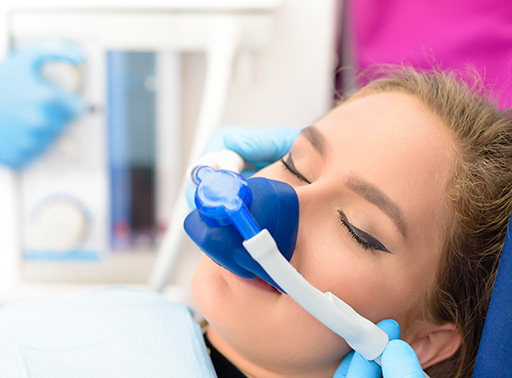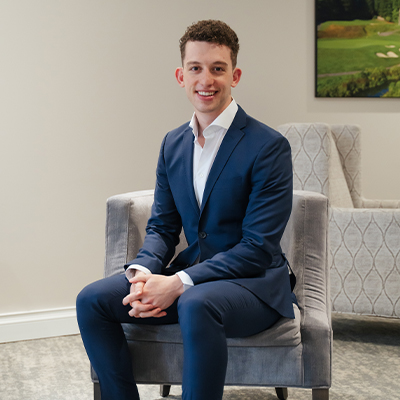
Sedation Dentistry Ottawa at Constitution Dental
Fear or anxiety before a dentist appointment is quite common. In fact, about 40 percent of Canadians are believed to suffer from dentophobia. Dentophobia often leads patients to find numerous ways to avoid any and all active dental appointments due to constant anxiety. Those patients often may not receive the dental care that they need which negatively affects their oral health. Thankfully, there sedation dentistry ottawa methods that can help you deal with anxiety and mental stress ahead of or during your dentist appointment. What is Sedation Dentistry exactly in Ottawa?
Simply put, sedation dentistry is a way to – as the name indicates – sedate you during your dentist appointment. There are different forms of sedation (explained below) you may choose from. Our team will consult with you and help you pick the right option for you prior to your appointment. No matter what form of sedation dentistry Ottawa you choose though, the goal is always simply to relax you physically and mentally throughout your appointment or procedure, in order to give you the proper care.
Forms of Sedation Dentistry Ottawa
At Constitution Dental, we offer two forms of sedation dentistry in Ottawa: IV sedation and nitrous oxide (“laughing gas”) sedation. Below are brief explanations of how each form of sedation works, what its effects are, and for which procedure they would be recommended.
IV Sedation
When you think of IV sedation, you probably connect it with the type of sedation that leaves you unconscious, for example during major surgeries. However, that is not necessarily the case. IV sedation in dentistry Ottawa is mostly administered to merely put you in a semi-conscious state where you are still able to communicate with your dentist and follow basic instructions.

This form of sedation is recommended for long and invasive procedures (for example dental implants or wisdom tooth extraction). It may also be recommended during less invasive procedures for patients with extreme anxiety.
What does IV Sedation feel like? Well, most patients will feel calm and sleepy. They usually remain in a semi-awake state and are still able to communicate with our team, though most patients have little or even no memory of the procedure when IV sedation is used in sleep dentistry Ottawa. Obviously, your safety is our main concern for the entire duration of the IV sedation. Our team at Constitution Dental are highly trained, possess the required certifications, and have extensive experience with IV sedation or sleep dentistry Ottawa. They will closely monitor your vital signs before, during, and after the sedation.
Please note that the effects of IV sedation do linger for a while after the procedure of sleep dentistry Ottawa. You will therefore need to arrange for transportation to and from the appointment as you will be unable to drive.
Laughing Gas
Nitrous oxide – more commonly known as “laughing gas” is another form of sedation we offer at Constitution Dental. The application is very easy as you will simply breathe in the gas through a mask. Laughing gas is odorless and induces a euphoric state in patients, leaving you relaxed and at ease.
Another benefit of nitrous oxide is that its effects wear off quickly, so it will not affect your ability to drive home afterward. However, this also means that it is better for shorter procedures or patients with less severe anxiety.

Some of the advantages of IV sedation dentistry Ottawa include:
- It delivers a stronger sedative effect. When compared to oral sedation or inhalation sedation, IV sedation offers a higher level of sedation.
- The effect is felt Since drugs are administered intravenously, they begin to take effect quickly. Oral sedatives, for example, can take an hour or more to act.
- Patients can recover Patients generally have a shorter recovery time with IV sedation than they do with oral sedation or general anesthesia.
- Easessevere anxiety – Even patients dealing with severe anxiety can benefit from IV sedation, since it delivers a stronger level of sedation.
- Producestemporary Amnesia is a common side effect of the medications used for IV sedation, so patients rarely remember the dental procedure.
- Reducesthe gag For patients with a sensitive gag reflex, the IV sedation can help to suppress that reflex, making dental treatment easier and more comfortable.
- Allows patients to remain conscious. Patients stay conscious during this type of sedation, making it a great alternative to general anesthesia.
Who will be providing and monitoring your General Anesthesia/IV Sedation?
At Constitution Dental, Dr. Max Silver, one of our lead dentists and an expert in his field with extraordinary dental skills, will provide and monitor your first or return sedation treatment. He has received advanced training in all levels of dental sedation.
During more extensive surgeries, Dr. Silver is assisted by a highly trained dental anesthesia specialist who will deliver and continuously monitor your sedation levels and vital signs.
Monitoring begins pre-operatively and continues post-operatively until you are awake, medically stable and able to be safely discharged. Dr. Silver is committed to delivering your treatment in a caring, empathetic, and calming environment that we provide at Constitution Dental, ensuring your entire experience at our office remains a safe, comfortable and positive one.

When should General Anesthesia or IV Sedation be used in Ottawa?
General anesthesia uses a combination of inhaled gasses and intravenous medications to make patients completely unconscious. While under anesthesia, patients are unable to respond or feel any pain during a medical procedure. These days, full anesthesia is not used often for dental procedures.
Sedation will be recommended by Dr. Large for oral surgery procedures to make it easier to relax during long cosmetic or reconstructive dental treatments. This often includes implant placements and wisdom tooth extractions. IV sedation may also be advised for less invasive dental treatments in order to help patients with extreme anxiety.
Because IV sedation and other methods of sedation dentistry Ottawa are so effective, general anesthesia isn’t used for a lot of dental procedures anymore. Yet it can be useful or indicated in some specific situations.
- If you have a high tolerance for medications used for IV sedation, you may need general anesthesia for dental procedures when sedation would be otherwise used.
- In rare cases, for extremely anxious individuals who are unable to cooperate when sedated, general anesthesia may be used for dental procedures.
- For traumatic dental procedures, such as the extraction of wisdom teeth completely impacted or covered in bone, general anesthesia may be the preferred option.
- General anesthesia may be recommended for other types of complex oral surgery.
